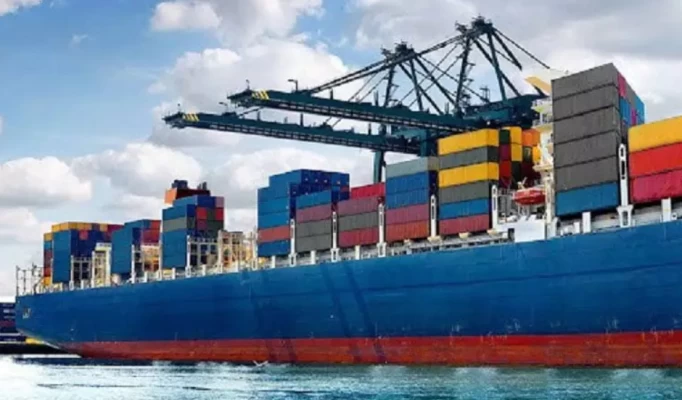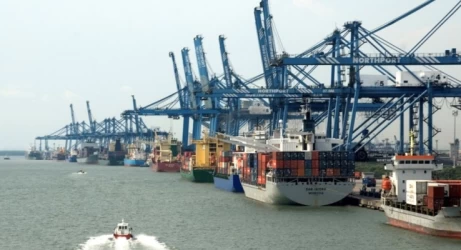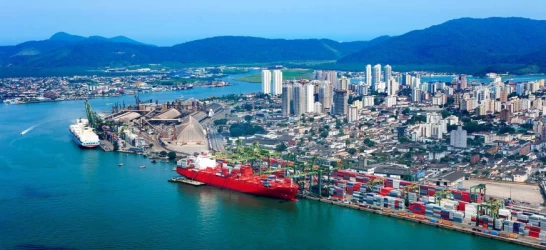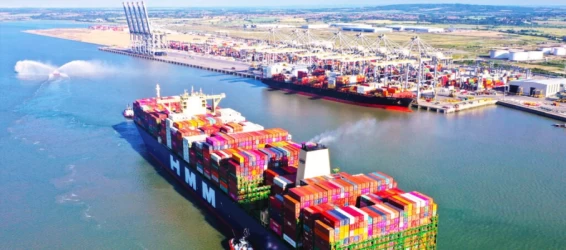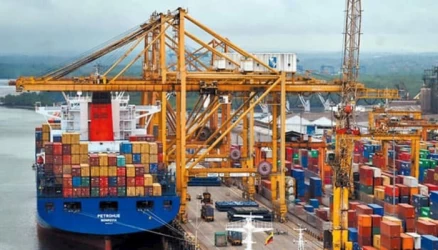Sea freight at Apapa port
Maritime transport plays a vital role in global trade, facilitating the movement of goods and passengers across the world. Apapa Port, located in Lagos, Nigeria, is one of the country’s most important ports and a critical hub for West African trade. It serves as the gateway for much of Nigeria’s international trade and contributes significantly to the nation's economy. In this article, we will explore maritime transport in Apapa Port, its history, infrastructure, challenges, and potential solutions for improving its efficiency.
History of Apapa Port
Apapa Port, established in the 1960s, began as a modest commercial port to support Nigeria’s growing trade activities. Over the decades, it has expanded significantly and is now the largest seaport in Nigeria. Situated in Lagos, Nigeria’s commercial capital, Apapa Port became a pivotal node for the export of crude oil, natural gas, minerals, and other goods. Its strategic location on the Gulf of Guinea, near the Bab-el-Mandeb Strait, makes it a key player in regional and global maritime routes.
The development of Apapa Port was driven by Nigeria’s rapid economic growth and the increasing demand for imports and exports. Over the years, the Nigerian Ports Authority (NPA) has invested in expanding the port’s facilities to accommodate larger vessels and manage growing volumes of cargo.
Importance of Maritime Transport in Apapa Port
Maritime transport at Apapa Port is essential not only for Nigeria but for the entire West African region. The port handles approximately 60% of Nigeria’s seaborne trade, including a variety of goods such as crude oil, natural gas, machinery, foodstuffs, and consumer products. As the primary hub for international trade, the port’s operations are crucial for the economy, with many industries reliant on the timely import of materials and export of products.
Nigeria, being one of Africa’s largest oil producers, uses Apapa Port as a major export point for crude oil. This makes the port central to Nigeria’s foreign exchange earnings and positions it as a key player in the global energy market.
Infrastructure and Facilities of Apapa Port
Apapa Port boasts several modern facilities that have evolved to meet the demands of international trade. The port has a number of key infrastructure elements that contribute to its efficiency and importance in the region:
- Multiple Berths and Terminals: The port contains several berths designed to handle a wide range of vessels, from container ships to oil tankers. These terminals are equipped with modern machinery to facilitate the loading and unloading of goods quickly and efficiently.
- Storage Facilities: Apapa Port offers extensive storage facilities, including warehouses for dry goods, cold storage for perishable items, and large tank farms for petroleum products. This diversity of storage capabilities enables the port to handle a wide array of cargo types.
- Advanced Loading and Unloading Equipment: The port utilizes advanced cranes, forklifts, and automated systems to manage cargo efficiently. These technologies help to reduce turnaround times for vessels, increasing the port’s overall capacity.
- Road and Rail Connectivity: One of the port’s key strengths is its connection to Nigeria’s road and rail networks, enabling the seamless transportation of goods to various regions across the country and beyond. Rail transport from Apapa helps reduce the pressure on roads and provides an alternative method for moving large volumes of cargo.
Maritime Operations at Apapa Port
Maritime operations at Apapa Port are highly structured to ensure efficiency in cargo handling. The processes involved in maritime transport at this port include:
- Arrival of Ships: Vessels arriving at Apapa Port are typically scheduled in advance to ensure smooth docking. Once docked, the loading and unloading of goods begin promptly, using sophisticated equipment to minimize delays.
- Cargo Handling and Storage: Upon unloading, goods are transferred to either on-site storage facilities or directly to transport vehicles (trucks or trains). Goods are categorized based on their type (liquid, dry, or perishable) and stored accordingly.
- Customs and Security Checks: Apapa Port has strict customs and security protocols to prevent smuggling and ensure that all goods are legally cleared before entering the country. These checks are vital for both national security and the efficiency of the port’s operations.
- Distribution and Transport to Final Destinations: Once cleared, goods are distributed to their final destinations, either within Nigeria or to neighboring West African countries. The port’s connectivity to major road and rail networks ensures that goods can be delivered promptly.
Challenges Facing Maritime Transport in Apapa Port
Despite its strategic importance, Apapa Port faces several significant challenges that hinder its efficiency and growth potential. Some of the most pressing issues include:
- Traffic Congestion: One of the primary challenges at Apapa Port is severe traffic congestion, particularly on the roads leading to the port. The large number of trucks queuing to load and unload goods often causes long delays, which can significantly slow down operations and increase transportation costs.
- Outdated Infrastructure: While some facilities at the port have been upgraded, other parts of the port's infrastructure are outdated and in need of modernization. The lack of modern equipment and facilities can lead to inefficiencies in cargo handling.
- Security and Corruption: Corruption and inadequate security are persistent problems at Apapa Port. Issues such as bribery, theft, and the manipulation of customs procedures not only slow down operations but also undermine trust in the port’s governance.
- Labour Shortages: There is a shortage of skilled labor in certain areas of port operations. This gap in expertise can lead to delays in handling cargo and increase the likelihood of errors during critical processes such as loading and unloading.
Solutions to Improve Maritime Transport at Apapa Port
To address the challenges faced by Apapa Port, several solutions can be implemented to improve the efficiency and effectiveness of maritime transport operations:
- Traffic Management and Infrastructure Upgrades: One of the most effective solutions to ease congestion is to invest in smarter traffic management systems and expand road capacity. Additionally, upgrading port infrastructure, such as modernizing berths and purchasing new cargo-handling equipment, would significantly improve efficiency.
- Investment in Rail Transport: Expanding and improving the rail transport system serving the port could significantly reduce the reliance on road transport, easing congestion and speeding up the movement of goods to and from the port.
- Technology and Automation: The implementation of advanced technology, such as automated cargo-handling systems and real-time tracking solutions, can greatly improve the speed and accuracy of port operations. This would reduce human error and increase the overall throughput of goods.
- Anti-Corruption Measures: Strengthening anti-corruption measures and improving transparency in port operations is critical. Implementing stricter customs procedures and monitoring systems can help reduce corruption and ensure more efficient operations.
- Training and Workforce Development: Investing in training programs for port workers and developing a skilled labor force will help improve operational efficiency. A well-trained workforce is essential for handling the sophisticated equipment and processes needed to operate a modern port.
Conclusion
Maritime transport at Apapa Port plays a crucial role in Nigeria’s economy, serving as a major hub for international trade and commerce in West Africa. Despite its significance, the port faces several challenges, including traffic congestion, outdated infrastructure, security issues, and labor shortages. However, with strategic investments in infrastructure, technology, and workforce development, Apapa Port can continue to thrive as one of the most important maritime gateways in Africa.
If you have any specific questions or need further assistance, feel free to ask!

